Neighbours lend a hand in Ukrainians’ time of need
Locals in a small Polish town mobilise to help the refugees streaming across their border.
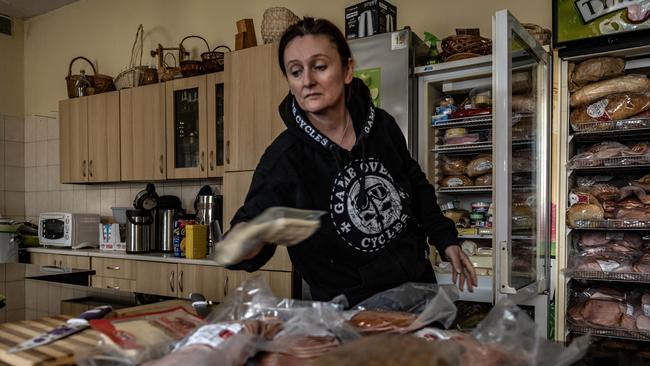
Dance teacher Beata Lugowska woke to a phone call at 6am on February 24, 53 minutes after Russia launched its extraordinary attack on Ukraine.
It was a friend in Lubaczow alerting her to the shocking news that their neighbouring country just 2km away was under Russian assault across multiple cities.
She was warned her picturesque spa town, Horyniec-Zdroj, and its 2500 residents might encounter some frightened refugees in the coming days. The village is right on the border with Ukraine, with just thick pine forest between it and northwestern Ukraine.
Lugowska began a ring around herself. In minutes she had alerted her Circle of Rural Housewives, a community group that usually makes preserves to sell at country festivals or cook for town festivities. Within hours the group of about 30 had made the first batches of what would be many thousands of ham and cheese sandwiches, and hundreds of urns of warming soup.
By 5pm, just 12 hours after the war began, the first refugees on foot were being greeted by Horyniec-Zdroj townsfolk, having crossed 20 minutes down the road at the Budomierz border post.
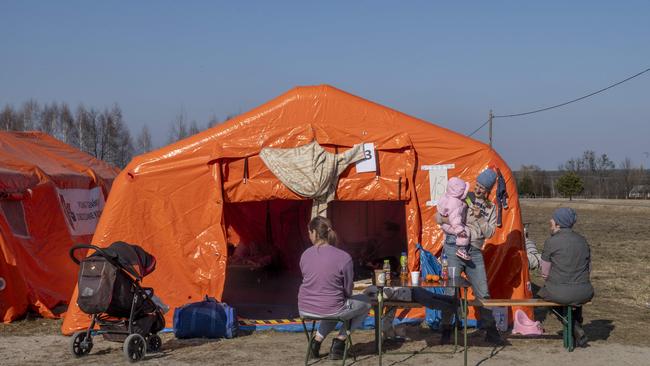
Like her neighbours, Lugowska immediately took in a refugee family: Elena and her son Nico, fleeing from Kyiv. A local farmer opened his barn and about 100 bunked there for a fortnight until being sent by bus to Germany.
With three million refugees having fled mainly into Poland, the country is now full. So is Berlin and some other European cities.
Lugowska thought Horyniec-Zdroj’s efforts on the ground soon would be superseded by the Polish army or organised government assistance.
Instead, three weeks into the war, she is still making sandwiches with her friends, including house guest Elena, and the town still staffs the tent at the border on Fridays, with six other local towns alternating through the rest of the week. The Circle of Rural Housewives members fill two day shifts, the schoolteachers arrive in the early evening, and then the town’s firefighters and football players are there through the night.
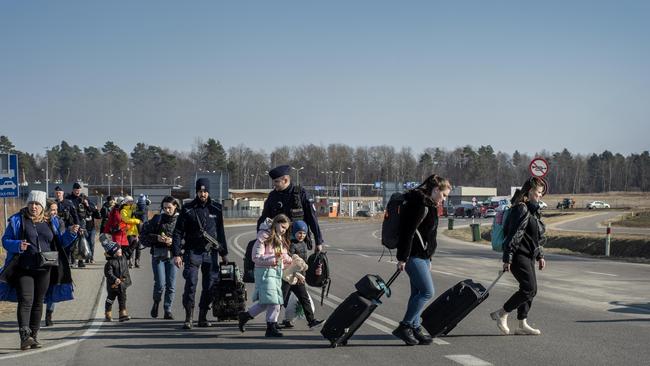
More than 10,000 refugees cross here every 24 hours. The government has been focused on dispersing the refugees as quickly as possible, organising buses to take them well away from the border towns, fearing any tent city would be a Putin target.
Within days of the invasion, Horyniec-Zdroj official Krystian Klysewicz started a charity to fund the refugee support: paying for the food, and especially pallets of much loved small treats for children distraught at having to leave their fathers and brothers behind to fight.
This week Ukraine lowered the age to 16 for men who must stay in the country. Teenagers are now having three days’ training with a weapon.
“It is important to put a smile on the faces of the little ones: they have just said goodbye to their dad and brothers and their mum is sad, so anything we can do to make them feel a little better is worthwhile,” says Klysewicz who has spent €14,000 ($21,200) of charity donations on food supplies, tents and heating.
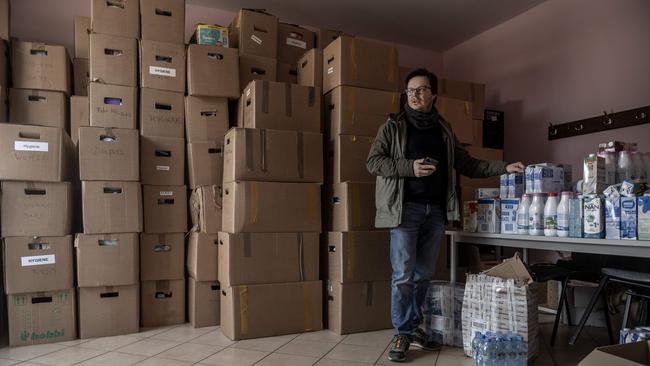
Horyniec-Zdroj’s footballers heard about a mother from eastern Ukraine with four children who had driven 1400km to the border but had spent eight hours in the freezing vehicle in sub-zero temperatures. She was in distress while waiting her turn in the border queue.
The footballers crossed the border so they could drive her through, while Klysewicz sorted 10 heated tents to be erected on the Ukrainian side so subsequent refugees could keep as warm as possible. This week he sent across 150 sleeping bags.
Within days of the war starting, support began arriving into Horyniec-Zdroj from other small communities in Luxembourg, Belgium and Britain.
Now Klysewicz, whose day job is the town’s tourism officer, organises for 95 per cent of the donations to go immediately onward to Ukraine, with the remainder carefully sorted into boxes stacked ceiling high in the local theatre and a community building to help the refugees who have made it into Poland.
“Any medication and food goes straight across,’’ he says.
But it turns out the transfer is not so easy.
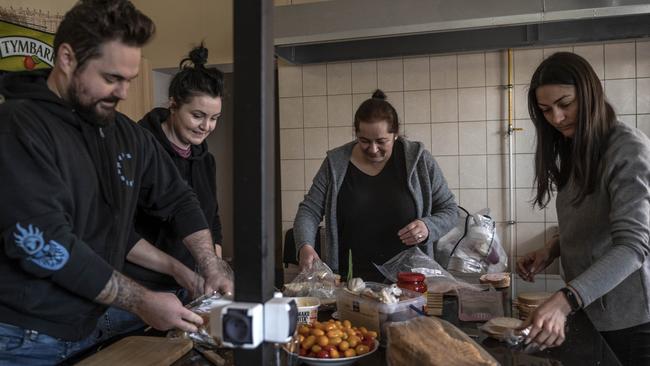
When a semi-trailer filled with nappies, water and medication arrived from Luxembourg in the first week there wasn’t a qualified driver to take the vehicle through the checkpoints.
“We couldn’t just send the truck because there were no companies in Poland who wanted to go to Ukraine and Ukrainians can’t cross the border to drive the truck back in because of the age restrictions,’’ Klysewicz says.
At the same time Klysewicz’s contacts in Ukraine had problems too: no fuel. But at a makeshift collection point Ukrainian farmers sent family members with litre bottles and whatever they could spare. In all they amassed 80 litres of diesel, enough for several smaller trucks to get to and from the border.
Then a side deal was struck with Ukrainian and Polish border guards to allow the unloading and reloading of the aid in no-man’s land between the two border posts. Horyniec-Zdroj’s footballers were called into action once again.
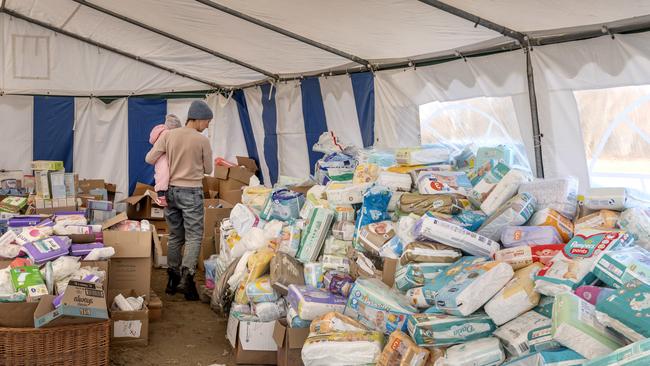
But to everyone’s frustration, Horyniec-Zdroj townsfolk aren’t allowed to top up the Ukrainian truck with fuel.
“They only allow the humanitarian goods to be loaded,’’ Klysewicz says.
Any type of fuel is considered to be military aid and needs Polish government sign-off. The Poles are nervously channelling their military contributions through a central NATO hub so their actions are not viewed provocatively by Russia. An offer to supply Ukraine with their MiG-29 jets via the US was knocked back by NATO countries.
Some of the charities that have linked with Horyniec-Zdroj now are raising money for an ambulance after the regional authorities sent its only vehicle into Ukraine in the aftermath of the bloody Russian attack 40km away at the Yavoriv training centre that killed more than 35 people on Sunday.
Klysewicz says the grassroots efforts by Polish volunteers provide crucial support to the Ukrainians.
“In the first days (of the invasion) we were very afraid of what was going to happen and if the war will escalate,” he says.
“It was hard to concentrate at work thinking about what is going to happen.
“When the refugees stared coming over it was a distraction, thinking how to help them and to organise everything, but now we know what to do, everyone knows. People are united.”


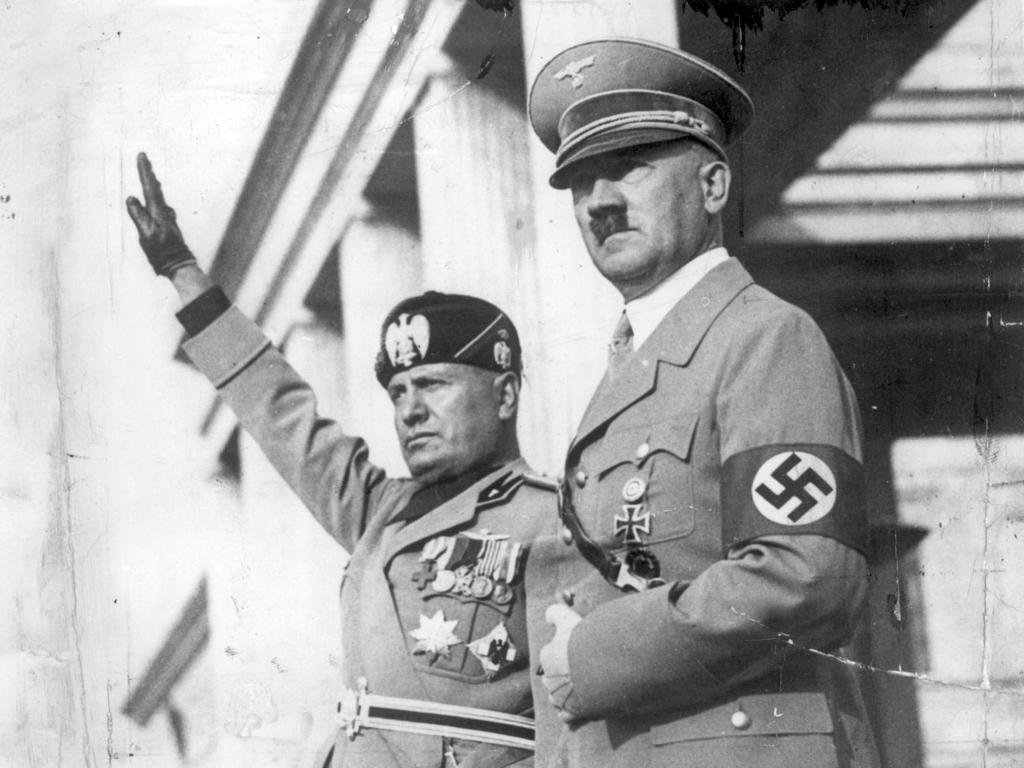
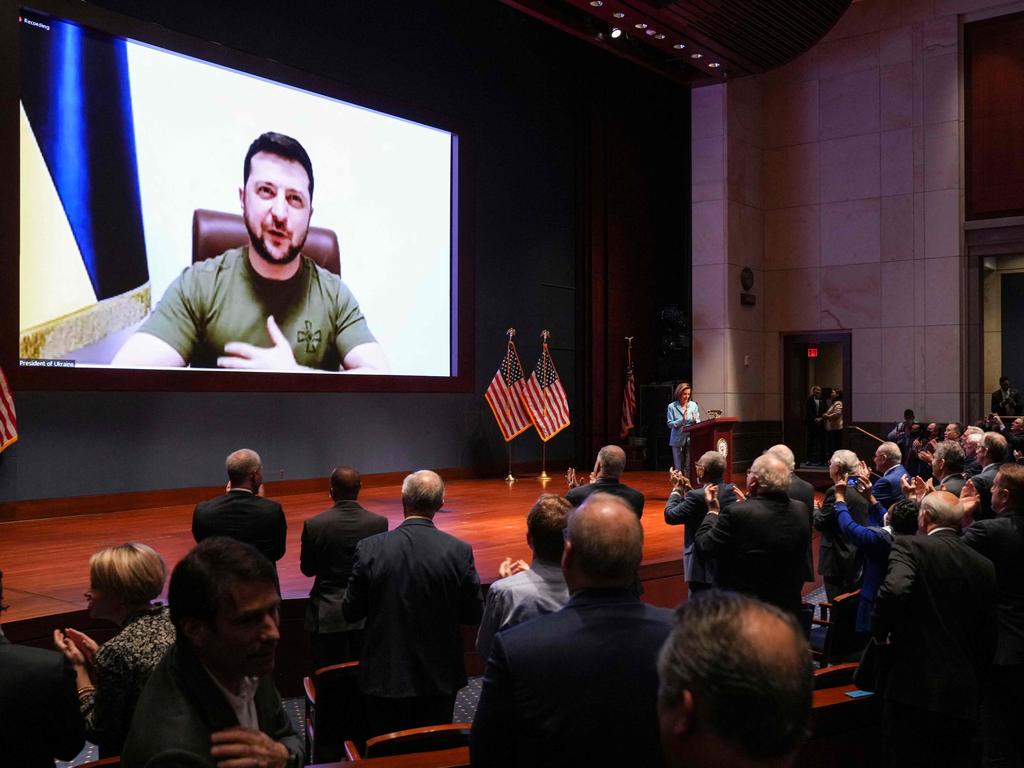
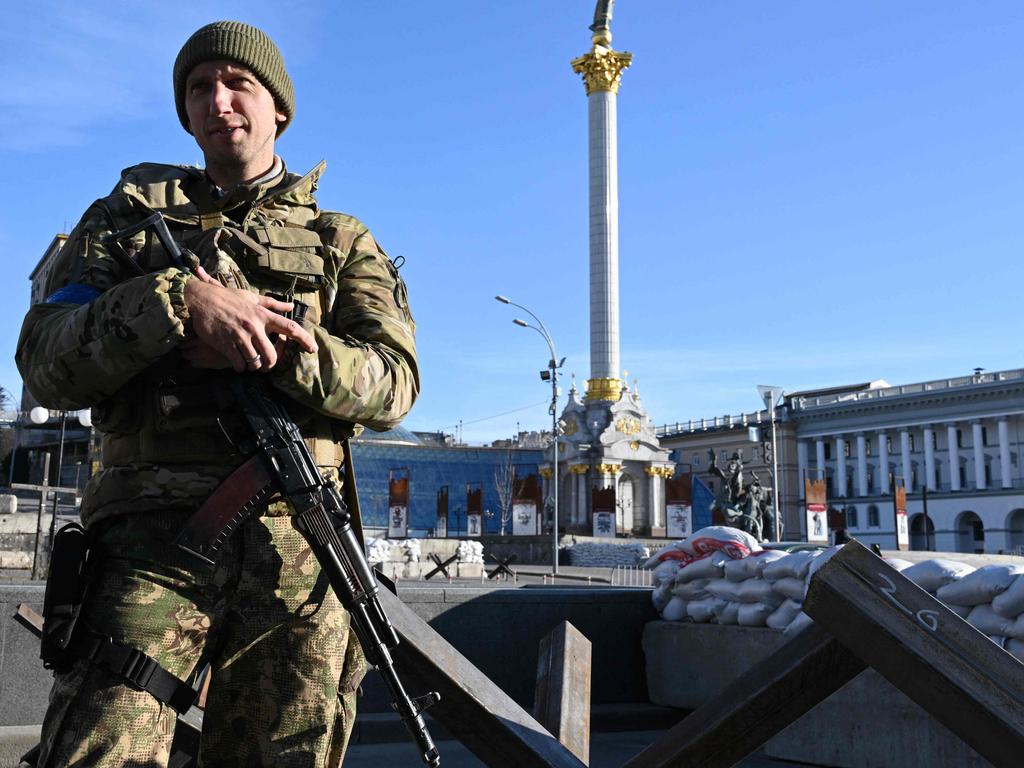


To join the conversation, please log in. Don't have an account? Register
Join the conversation, you are commenting as Logout